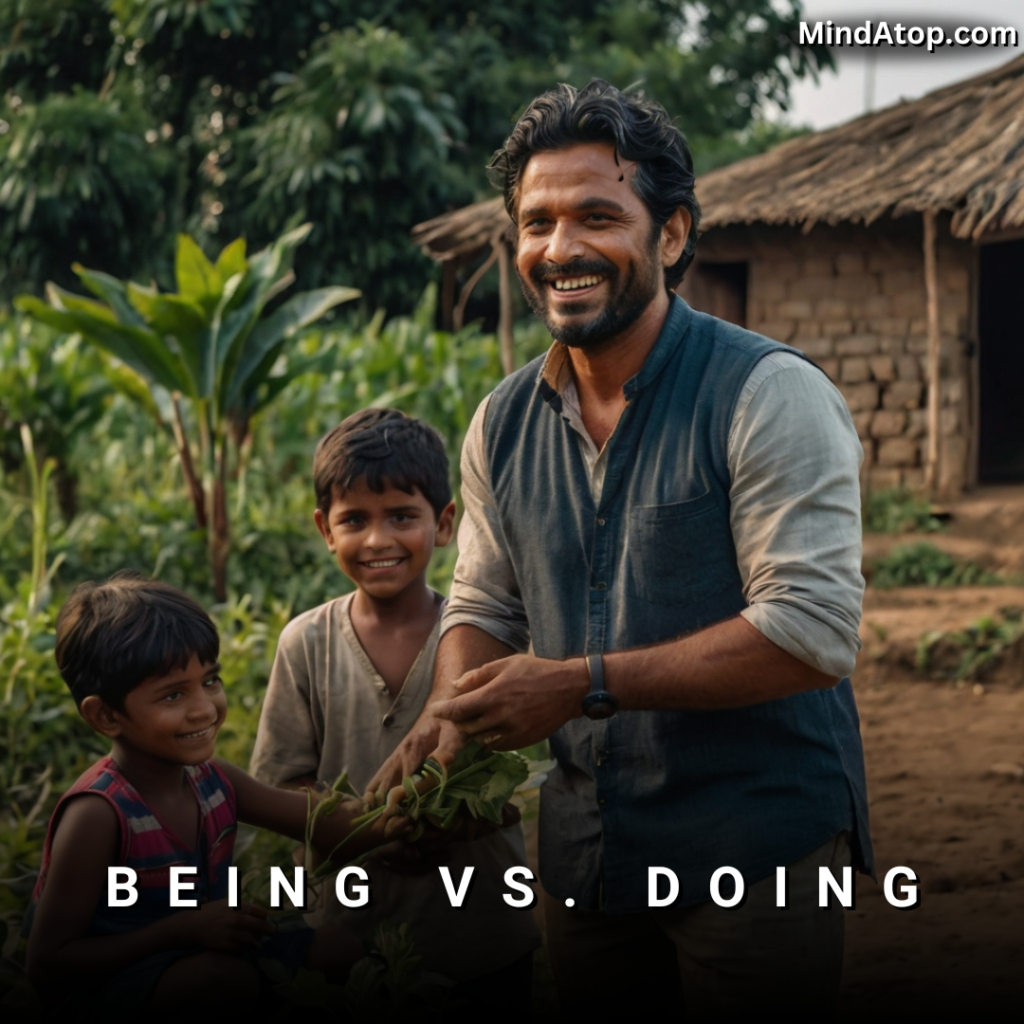Tarun was known throughout the village for his industrious nature. From dawn till dusk, he worked tirelessly in his fields, tilling the soil, sowing seeds, and nurturing crops with loving care. His hard work yielded abundant harvests year after year, making him a respected figure in the community.
One year, however, a severe drought struck the region. The rains failed, and the once fertile fields turned barren. Despite his best efforts, Tarun’s crops withered, leaving him devastated. The entire village felt the impact of the drought, but Tarun took it personally. His identity had been so closely tied to his role as a successful farmer that he struggled to cope with the loss.
As weeks turned into months, Tarun became withdrawn and despondent. He felt worthless without his crops flourishing. The villagers, who had always admired his hard work and determination, tried to console him. They reminded him that his worth extended beyond his farming skills—that he was valued for who he was as a person, not just for what he could produce.
One day, an elderly sage visited the village. He was known for his wisdom and compassion, and the villagers sought his guidance in times of need. The sage listened patiently to Tarun’s woes and then gently offered him a new perspective.
“My dear Tarun,” the sage began, “you are not defined by what you do, but by who you are. Your worth as a human being transcends your role as a farmer. It lies in your kindness, your resilience, and your ability to uplift others.”
Tarun pondered over the sage’s words. He realized that he had neglected other aspects of his life that brought him joy and fulfilment. He had been so focused on farming that he had forgotten to nurture his relationships with his family and friends. He had overlooked opportunities to contribute to the community in ways that went beyond agricultural success.
Inspired by the sage’s wisdom, Tarun decided to shift his focus. He began spending more time with his family, sharing stories and laughter around the dinner table. He volunteered at the village school, teaching children about agriculture and imparting life lessons learned from his own experiences.
Slowly but surely, Tarun’s demeanour began to change. He no longer measured his self-worth solely based on his farming achievements. Instead, he embraced his role as a compassionate neighbour, a devoted husband, and a mentor to the younger generation.
The villagers noticed Tarun’s transformation. They saw a man who radiated warmth and positivity, someone who enriched their lives not just through his hard work in the fields, but through his presence and his genuine care for others.
As time passed, the drought eventually broke, and Tarun’s fields flourished once again. But this time, Tarun’s happiness and sense of fulfilment were not solely dependent on the crops. He had learned a valuable lesson—that being a human being meant embracing all aspects of life, nurturing relationships, and finding joy in moments of connection and community.
While hard work and dedication are important, true
fulfilment comes from cultivating “how we are” as individuals—kind,
compassionate, and resilient—rather than being solely defined by “what we
do.”

